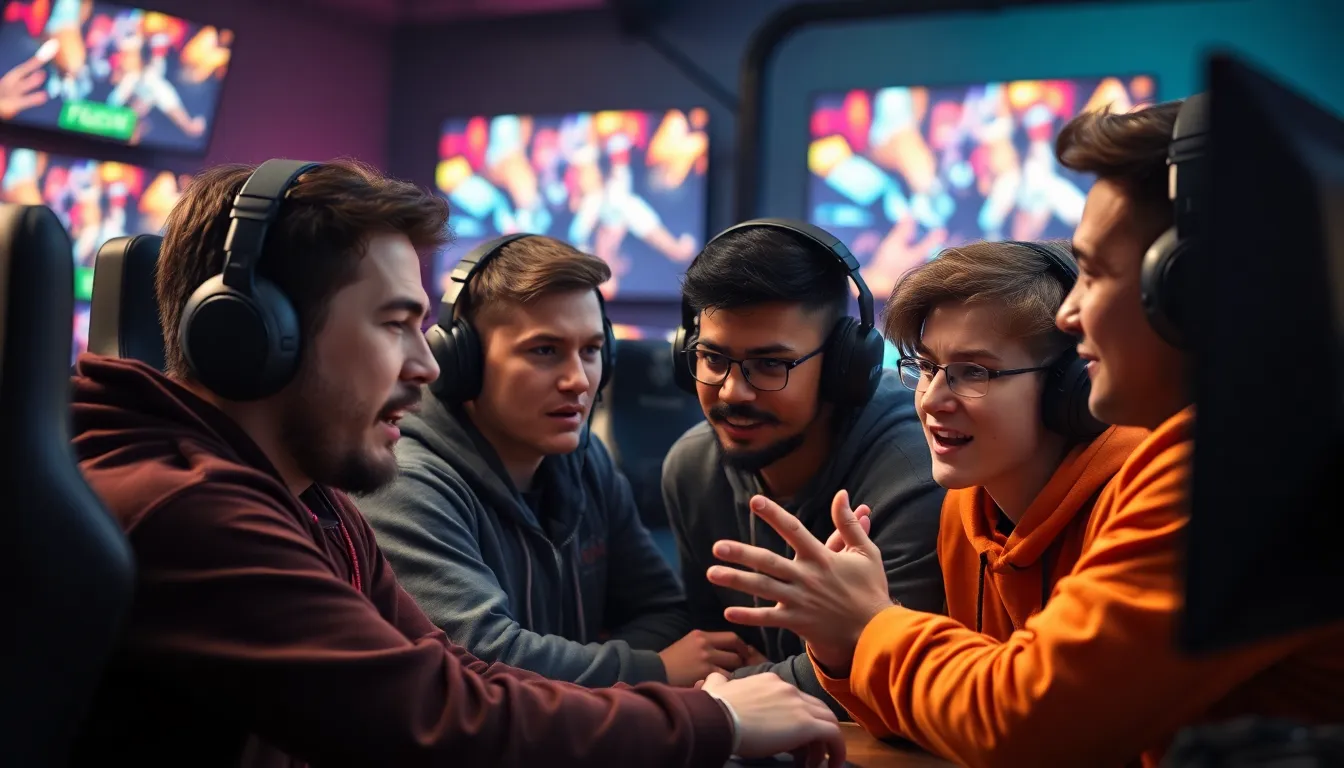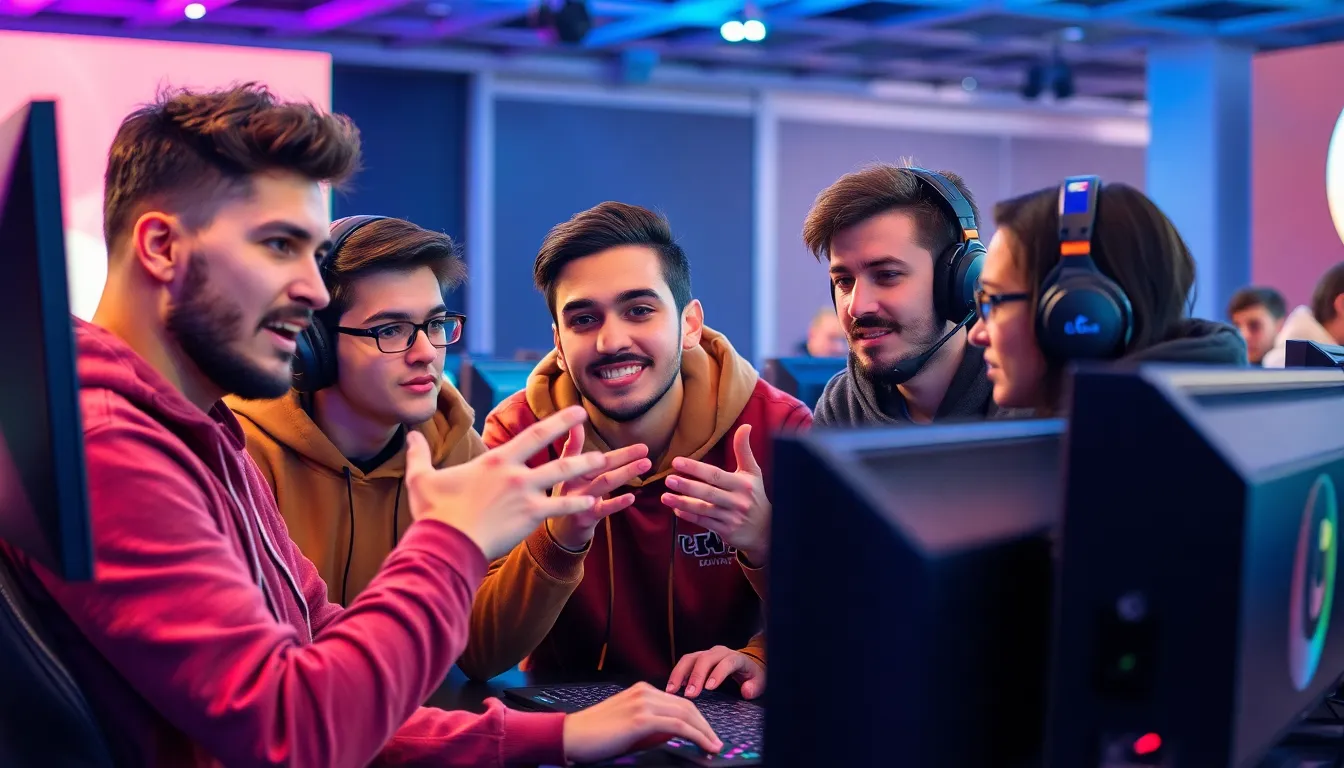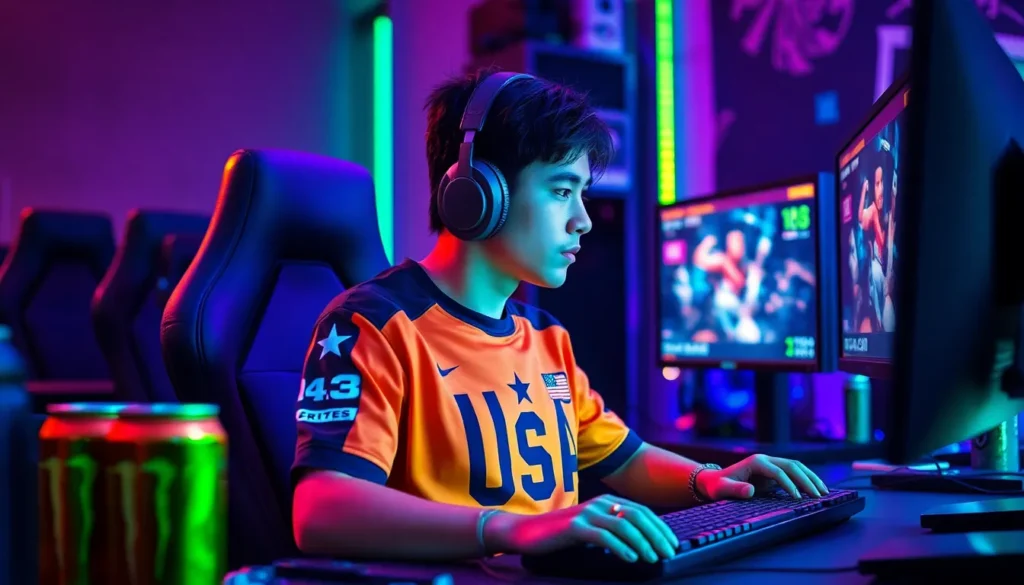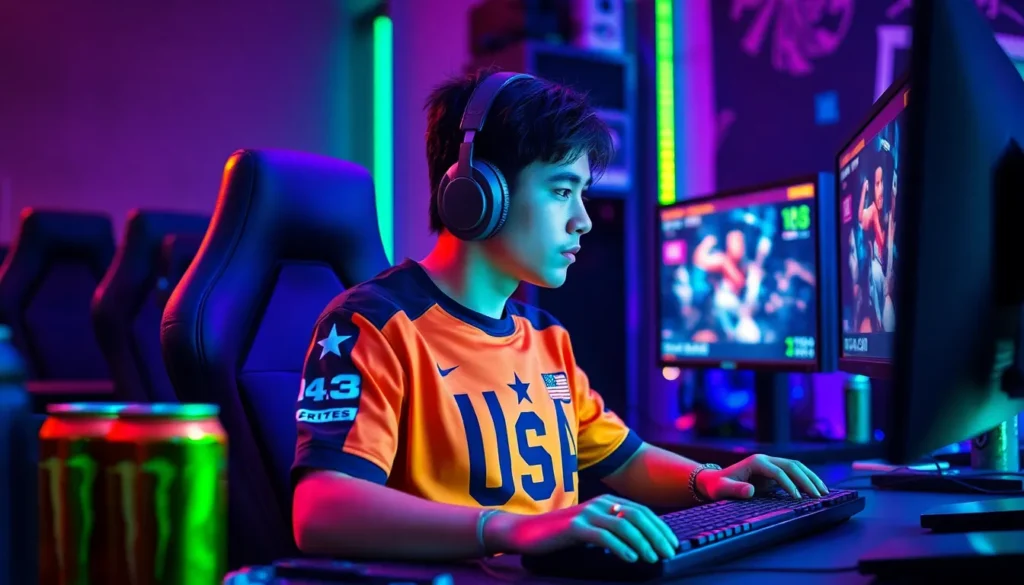In the fast-paced world of esports, where victories can be snatched from the jaws of defeat, team drama often steals the spotlight. Picture this: a team that’s supposed to be a well-oiled machine suddenly turns into a reality show, complete with plot twists, rivalries, and the occasional mic drop. It’s not just about the gameplay; it’s about the personalities clashing and the drama unfolding behind the scenes.
Table of Contents
ToggleOverview of Team Drama Esports
In esports, team drama significantly affects player performance and public perception. Competitive environments often lead to heightened emotions and conflicts, reminiscent of traditional sports. Rivalries develop among players, creating engaging narratives for fans and fueling viewership.
Team dynamics play a critical role in success. Communication issues can lead to misunderstandings, resulting in fractures within groups. When these tensions escalate, they capture the attention of fans and media alike, drawing parallels to reality television. Consequently, controversies often overshadow actual matches, shifting focus from gameplay to personal conflicts.
Examples of team drama abound in various esports. In games like League of Legends, player transfers can ignite fierce rivalries. Additionally, public arguments on social media provide a platform for stakeholders to engage in heated debates. The impact of these dramas not only affects team morale but also influences fan loyalty and sponsorship opportunities.
Esports organizations recognize the potential of team drama as a marketing tool. By fostering narratives around rivalries, they cultivate a dedicated fanbase eager for more content. Such strategies promote intense matches and generate buzz around upcoming tournaments, proving beneficial for teams and leagues alike.
Understanding team drama’s complexities enhances insights into esports’ evolving landscape. As teams navigate interpersonal relationships, the influence of drama on gameplay and organizational success remains undeniable. These dynamics elevate the viewing experience, ensuring fans stay invested in their favorite teams and players.
Causes of Team Drama

Understanding the causes of team drama provides insight into the underlying issues influencing player dynamics. Several factors contribute to this phenomenon, creating an environment where conflicts thrive.
Personality Clashes
Personality clashes often serve as a root cause of discord within esports teams. Players with differing communication styles or leadership approaches may struggle to coexist. Some individuals thrive on collaboration, while others prefer independence. These contrasting preferences can lead to misunderstandings and hurt feelings. The competitive nature of gaming amplifies these clashes, making it difficult for team members to collaborate effectively. For instance, a player who is openly critical might clash with one who values encouragement. When tensions arise, gameplay suffers, as distractions shift focus away from strategy and performance.
Competitive Pressure
Competitive pressure in esports can intensify existing conflicts among team members. High stakes in tournaments elevate stress levels, causing emotions to run high and relationships to strain. Players often shoulder the burden of expectations from fans and sponsors. Such pressure can lead to frustration and blame when results don’t align with aspirations. In the heat of the moment, communication can falter, resulting in outbursts or conflicts. Teams may fall apart under this pressure if not managed correctly. Ultimately, the demanding nature of competitions amplifies the challenges posed by interpersonal relationships, contributing significantly to team drama.
Impact on Teams and Players
Team drama creates significant repercussions for teams and players, affecting both their performance and mental health.
Performance Issues
Conflicts among team members often lead to performance issues. Heightened emotions disrupt communication and synergy during gameplay. Players may focus more on personal disputes than strategies, resulting in subpar performance. Team cohesion suffers when rivalries distract from collective goals. Public disputes can invite unwanted media attention, further aggravating tensions. Misunderstandings stemming from drama can hinder players’ ability to adapt during crucial matches. As a result, teams may experience decreased win rates and reduced motivation. Esports organizations face challenges in maintaining a competitive edge amid internal strife.
Mental Health Considerations
Mental health concerns frequently arise from persistent team drama. Players endure significant stress from constant public scrutiny and intra-team conflicts. Anxiety may escalate due to fears of underperformance and negative fan reactions. Long hours of practice combined with unresolved disputes worsen mental resilience. In severe cases, burnout can impact a player’s career longevity. Organizations that overlook mental well-being risk losing valuable talent. Prioritizing mental health initiatives enables players to cope with external pressures and fosters a healthier team environment. Creating support systems proves essential in addressing these challenges and nurturing overall player well-being.
Notable Examples in Esports History
Team drama has created memorable moments in esports history, highlighting its impact on both gameplay and fan engagement.
Famous Team Conflicts
Conflicts such as the one between Cloud9 and their former player Tyler “Tyler1” Steinkamp captured the community’s attention. Tensions arose during disagreements over team dynamics and individual roles. Similarly, Team Dignitas faced internal strife when players clashed over strategies and leadership styles. Such disputes can lead to player transfers and roster changes, shifting team compositions. The public often witnesses these events, adding to the drama and intrigue surrounding esports.
Consequences for Players
Negative effects of team drama on players often manifest in performance drops. Discomfort among team members can create communication barriers, diminishing overall team synergy. Anxiety and stress levels tend to escalate, making it challenging for players to focus. Competitive environments amplify these issues, impacting players’ mental well-being and career longevity. Mental health struggles linked to persistent tension can lead to burnout, reinforcing the need for healthier team dynamics. Esports organizations must prioritize mental health initiatives to support player resilience and performance.
Coping Strategies for Teams
Coping strategies help esports teams navigate drama effectively. Implementing specific techniques fosters a healthier environment.
Conflict Resolution Techniques
Addressing conflicts promptly enhances team dynamics. Open communication allows players to express concerns without fear. Utilizing mediators can bring a neutral perspective during heated discussions, promoting understanding. Establishing ground rules for communication reinforces respectful dialogue. Regularly scheduled team meetings provide structured opportunities to address issues before they escalate. These approaches empower team members to collaborate on solutions, leading to stronger relationships and improved performance.
Building a Positive Team Culture
Creating a positive team culture serves as the foundation for success. Encouraging inclusivity makes all players feel valued and respected. Celebrating individual and team achievements boosts morale and fosters a sense of belonging. Establishing team rituals provides a shared identity that strengthens bonds. Providing opportunities for team-building activities enhances trust and cooperation among members. By prioritizing mental health and well-being, teams can create supportive environments that enhance overall performance and resilience.
Team drama in esports is more than just entertainment; it’s a significant factor that shapes the competitive landscape. The interplay of personalities and conflicts can influence not only player performance but also fan engagement and organizational success. As teams navigate these challenges, fostering a culture of open communication and mental health support becomes essential. By addressing interpersonal issues proactively, esports organizations can create a more cohesive environment that enhances both player well-being and overall performance. Ultimately, the evolution of team dynamics will continue to play a crucial role in the growth and appeal of esports as a mainstream phenomenon.




